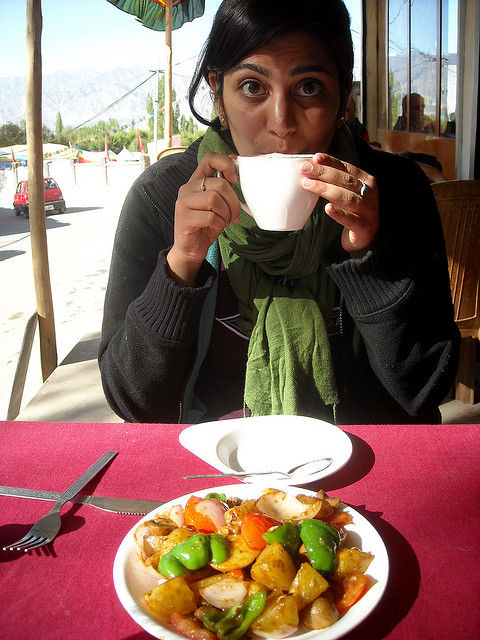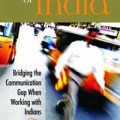On your way to an Indian wedding and not sure if you brought the right gift?
Don’t know how to make it up to your colleague that you missed his son’s first birthday party because you booked a last-minute pleasure holiday to Goa?
There is really only one great way to get the best advice on India.
Ask an Indian.
Then ask a different Indian.
Reading articles (like this one) online, purchasing books on India, taking cross-cultural training courses, joining online expat forums, and many other options can be helpful, mostly in that they make you aware of everything you don’t know and offer some nice principles and guidelines.
However, India is nearly always different in practice than in theory.
If all you know about India is what you learn online or from a book, you don’t know much. India is not the kind of place that can be learned theoretically from a distance. No one has ever known about India without actually visiting it.
Story
An OCI friend of mine who grew up in the US, Krishna, was in a tight spot recently.
He and his foreign wife were building a house in India and had chosen a builder for the project. They liked the plans and agreed to pay a sizeable initial investment and give the remainder when the house was finished.
However, after a long delay in correspondence, Krishna started to get worried. The work had nearly ground to a halt. All his attempts to contact the builder resulted in someone saying he was out of station and would call him back shortly. After two months, Krishna realized he needed to do something, but wasn’t sure what to do. He was by nature a very calm and peaceable man who tried to get along with everyone, so he felt at a loss.
Krishna went to some friends and asked their advice. One friend told him he had a relative in the police station and could get him access to the police superintendent to intimidate the builder into forcing him to give over the money. This option seemed a little abrupt and peaceful Krishna felt uneasy about it, so he consulted with some other friends.
His new friends suggested he stay away from the police as he would likely have to pay the police at least 10% of any money they recovered. They suggested he continue to badger the builder personally and just threaten to go to the police.
Then his second group of friends started asking Krishna a few questions.
Did you know this builder beforehand? No.
Where is he based? In the next state over, a few hours drive.
What is his name? (They were trying to discover the community the builder comes from.)
Do you know anyone else who used this builder? Just a casual acquaintance.
The more questions they asked, the more they suggested that using the police might not be a bad idea.
So, Krishna went back to his first friend and made the connection with the police. He filed an FIR and arranged with the police to go to the builder’s office the next day. They drove up in police jeeps, burst into the man’s office, and took him away to the station. Within a few hours, they let him go and Krishna had all the money back he had given. Well, about 90% of it to be exact. #GreyIsWhite
Advice for these kinds of specific situations is nearly impossible to find, but these “exceptions” seem to happen more often than the “rules”, and your guidebooks and training programs are liable to leave something out. Had Krishna tried to handle it on his own, he likely would not have been able to figure out the best way to get his money back, nor would he have been able to do it without his friend’s contacts. Asking two sets of friends made the right answer more clear to him.
Why talking to someone is better than reading articles:
1.) You get to know people. Asking someone for advice is a great way to make friends and learn their perspective on the world. When you sit down for chai or coffee with your neighbor and ask for her perspective, it is a great bonding moment.
2.) It will get you into their inner circle. There may be no faster way to get into an Indian’s inner circle than to come to them during a desperate situation and seek their eternal wisdom. Let’s review a few advantages of being in someone’s inner circle:
- You have access to all of their contacts.
- They will look out for you and make sure no one takes advantage of you.
- You can call on them during your Moment of Need and they will do whatever you need.
Of course, each of these runs the other way for you too, but you can’t do India alone. #See1See100
3.) The context changes the right answer. You could never read enough guides to know what to wear when you are invited by your colleague (Bengali Brahmin, Classic Indian, highly religious) to the marriage of his son (New Indian, atheistic), whose wife-to-be is a strict Kerala Syrian Christian who has lived most of her life in Dubai. These kinds of “rare” situations tend to happen a lot.
Asking two sets of Indians is helpful in managing this diversity. You are likely to get two different answers if you ask your elderly Gujarati neighbors or your young Bangalorean friends if you should serve alcohol when some of your friends from work are coming over. If nothing else, having two perspectives makes you more educated on what you should be aware of. Setting the context for your advisor giving names, ages, backgrounds, parents, etc.) will also help you get the best answer. #IndiasNotIndia
4.) Faking like you know what to do never helps. Let’s say you are invited to someone’s home for dinner. Being a savvy traveler, you get out your India guide, which suggests taking a nice decorative home piece. You go to a local shop and find a wall hanging that looks “Indian” to you and have it wrapped up. You give the gift, and your friend smiles politely. However, as a Muslim, he is now in the awkward place of not knowing what to do with this large OM picture you have given him.
No one learned anything from the whole situation. You are still not sure if you did the right thing (because you didn’t ask) and your friend is not likely to ever bring it up.
Don’t fake things. Admit that you know nothing (even if you think you know a little), and you will learn a lot more out of the situation and people will like you more. Don’t waste a chance to learn something new.
5.) It gives you an out in case you made the wrong choice. If you do happen to take some bad advice, your Indian advisors will have no problems with you blaming your bad move on them. What else are friends for?
Ask an Indian. Seriously. Stop reading this post now and call an Indian friend. Explain some situation you are in the middle of, or just got out of, and ask what you should have done. Then watch the magic unfold.
Photo Credit: Sistak on Flickr






[…] As an outsider, you often get the opportunity to participate in them as well. Doing so is not “acting like a Hindu” in a superficial sense, but participating along with friends in a special act. However, knowing as much as you can about the activities beforehand will make you much more prepared. When in doubt, ask for advice! […]